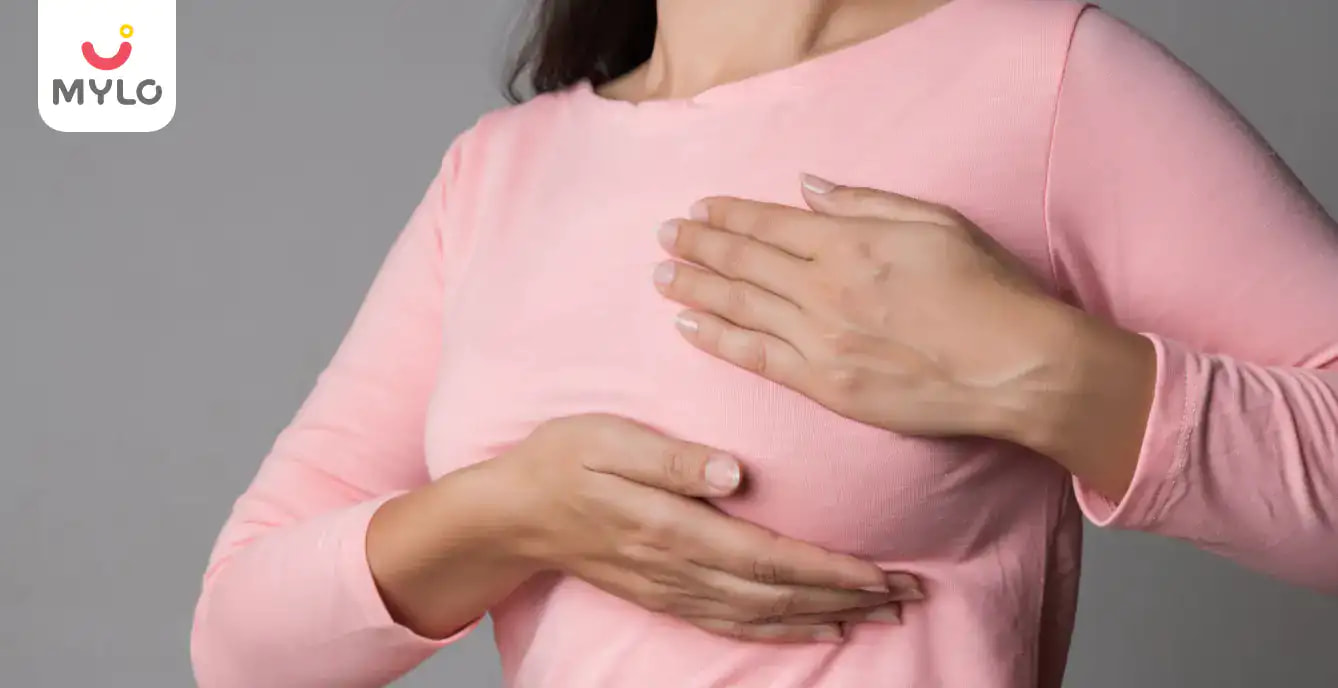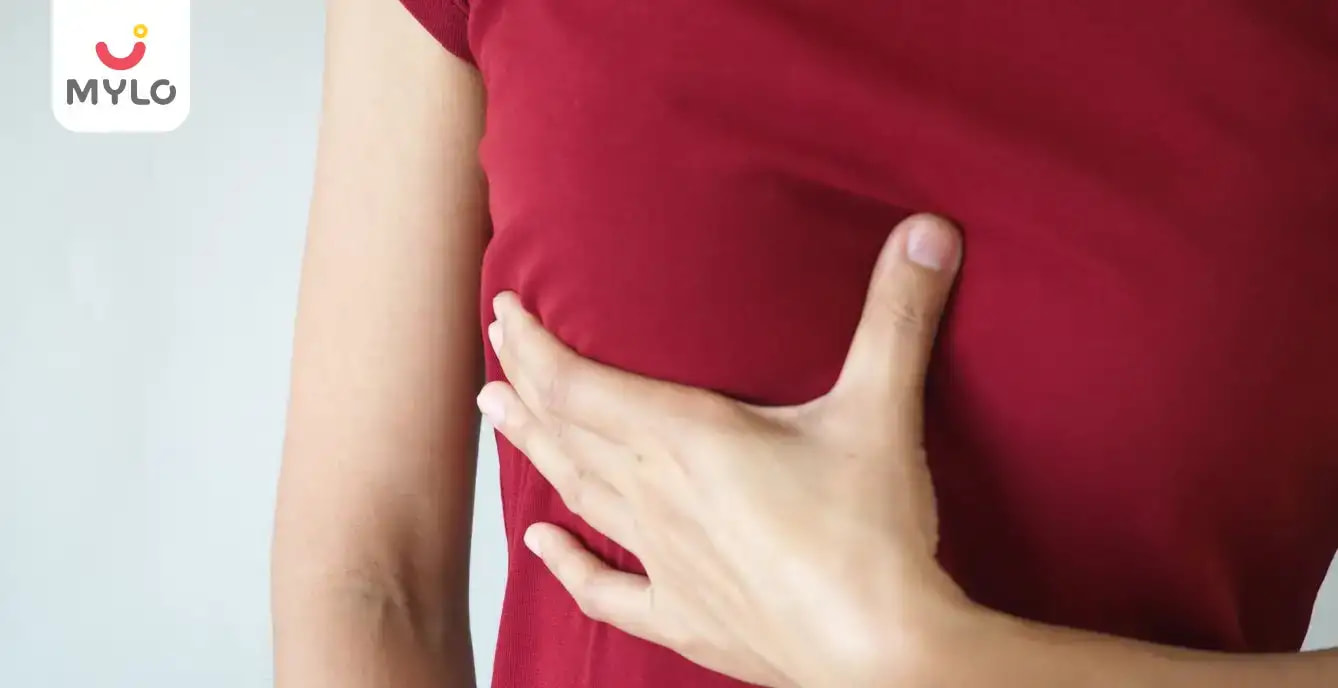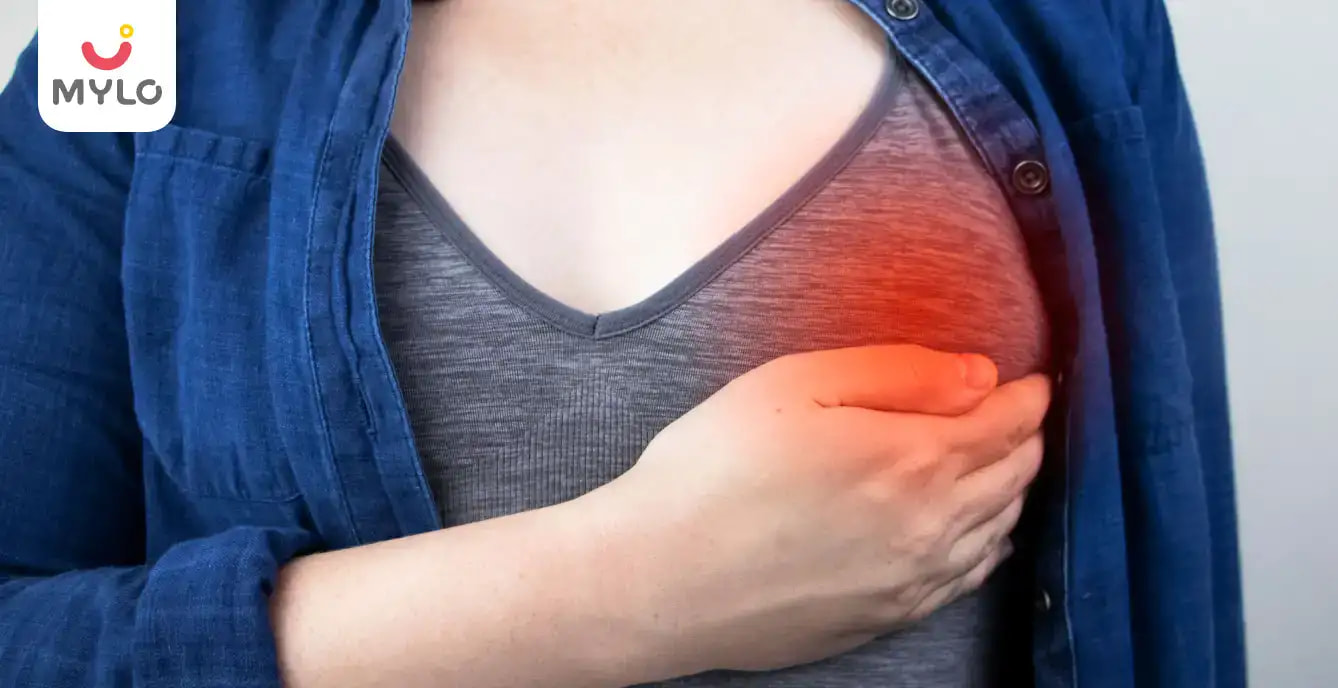Home

Breast Changes

White Spots on Nipple: Normal or Cause for Concern?
In this Article

Breast Changes
White Spots on Nipple: Normal or Cause for Concern?
Updated on 4 April 2024



Medically Reviewed by
Dr. Shruti Tanwar
C-section & gynae problems - MBBS| MS (OBS & Gynae)
View Profile

Do you often look in the mirror and check your body for anything that might seem unusual? Well, Miss Fault Finder, you aren’t alone. Most women become habitual in screening their bodies, and this can be quite helpful in the early detection of any disease or condition. During one of these self-examinations, have you ever noticed white spots on nipple or the areola?
If you’re wondering are white spots on areola normal or a cause for concern, then this article will shed light on the curious case of white nipple spots. We will discuss their causes in detail along with symptoms and treatment for each condition and inform you when to visit a doctor.
Are white spots on the nipple normal or unusual?
In most cases, a white spot on nipple or the areola (the darker skin surrounding the nipples) is benign and not a cause for concern. However, there can be multiple reasons for white spots on the areola and we can determine whether they are normal or unusual depending on the cause. So, before you sound the sirens, let’s try to understand the reasons for this condition.
What are the causes for white nipple spots?
Here are some of the most common reasons why white spots may appear on the nipple or areola along with their symptoms and treatment:
1. Montgomery glands
Some women may mistake Montgomery glands or areolar glands with white spots on their areola. Montgomery glands are small oil-producing glands on the areolar surface, which lubricate and protect the surrounding skin.
Symptoms
Let’s learn how to identify Montgomery glands:
-
They appear as small bumps or raised dots on the areola
-
They can be multiple and of different sizes
-
They may secrete a white, waxy substance to lubricate and moisturize the nipple and surrounding skin
Treatment and prevention
Since Montgomery glands are a normal part of your body, they don’t require any treatment. You only need to clean them gently, keep the skin moisturized and avoid picking or squeezing these glands. If you notice any redness, pain or discharge from these glands or the nipples, then you should visit a doctor or specialist.
You may also like: How & Why to Do Breast Self Examination
2. Blocked pores
Just as the pores on your skin can get blocked and develop whiteheads, similarly the pores on your areolar skin can get blocked due to excess oil or dead skin cells and develop white spots. They are usually not a cause for concern but it’s important to know how to identify them.
Symptoms
Blocked pores will present the following symptoms:
-
Small white spots, similar to whiteheads
-
Mild tenderness or discomfort
Treatment and prevention
In order to treat blocked pores and prevent them from developing again, here are some steps you can take:
-
Soak a clean cloth in warm water and apply it to the blocked pores for 5-10 minutes several times a day. This will soften the skin and eventually open the pores.
-
Use a gentle cleanser and exfoliator to remove the dead skin cells and cleanse the pores. Don’t use a harsh scrub, instead go for a liquid exfoliator containing salicylic acid or benzoyl peroxide.
-
It’s essential to keep the skin moisturized, especially if you have noticed dryness around your areolas. Use a non-comedogenic moisturizer that won’t clog the pores further.
-
You may also consider applying over-the-counter solutions like a gel or ointment that can help unblock the pores after consulting a doctor.
You may also like: Lump in Breast During Pregnancy: When to Get Serious and Visit a Doctor
3. Blocked milk ducts
If you happen to notice white spots on the areola or the nipple while breastfeeding, then it is likely to be a blocked milk duct. Such a blockage may occur when dried milk accumulates in the nipple and prevents the proper flow of milk during breastfeeding.
Symptoms
Now you may wonder how to identify whether the white spot on my nipple is due to a blocked duct or something else. Don’t worry, here are some symptoms that will help you distinguish a blocked duct:
-
You may notice pale yellow or pink spots on the nipple’s surface
-
The surrounding skin may turn red
-
You may feel pain or stinging, stabbing sensations around the area
If you ignore these symptoms, over time they may develop into mastitis- a painful breast infection.
Treatment and prevention
No need to lose hope, there are several ways to treat white spots arising due to a blocked milk duct.
-
Most of the time, you can dislodge the blockage by breastfeeding or pumping.
-
If the white spot persists, applying warm, wet compresses before feeding can also loosen the plug.
-
In some cases, the doctor may suggest using a sterile needle to open the pore and gently squeeze the area to clear the blockage.
If you’d like to prevent such a condition, then make sure your baby latches properly during breastfeeding and don’t wear any tight clothes or undergarments that may restrict your milk flow.
4. Incomplete milk drainage
Another common reason for white spots on areola can be incomplete milk drainage during breastfeeding. This happens when the breasts are not drained fully during feeding, which ultimately leads to blocked nipple pores. This frequently happens to women who have an oversupply of milk during pregnancy or breastfeeding or those who frequently switch breasts before the baby has finished feeding.
Symptoms
If you notice a white spot on nipple when breastfeeding and it is accompanied by discomfort and a feeling of heaviness or fullness, then it might be due to incomplete milk drainage.
Treatment and prevention
We have discussed the treatment for blocked pores above. Let’s talk how to prevent incomplete milk drainage and resulting blocked pores:
-
Breastfeeding more frequently
-
Emptying the breast before offering the other one to your baby
-
Pumping when unable to breastfeed
You may also like: The Ultimate Guide to Stress-Free Pumping Sessions
5. Excessive pressure on the breast
Another reason why breastfeeding moms may notice white spots on their nipple or areola can be due to excessive pressure on their breasts. Tight or underwire bras, restricting clothing, baby carriers or even seatbelt straps can be the culprits.
Symptoms
To identify white nipple spots caused due to excessive pressure, look out for the following signs:
-
Redness on the nipple or areola
-
Discomfort or tenderness
-
Swelling or inflammation of the nipple, areola or breast
Treatment and prevention
White spots caused due to pressure should disappear on their own if they’re no longer under pressure. However, it may take some time and you can consult your doctor for a quick resolution. To prevent this condition, make sure to wear well-fitting bras and avoid any type of tight clothing. Additionally, adjust the baby carrier or seatbelts properly so they don’t exert pressure on your breasts.
6. Thrush- a fungal infection
Sometimes breastfeeding moms may contract a fungal infection, Thrush, caused by candida albicans fungus. This too can cause white spots on nipple or areola.
Symptoms
-
Redness
-
Intense pain
In case the infection transmits to the baby, they may develop white, cheesy spots in their mouth and face trouble latching onto the breast.
Treatment and prevention
It’s essential to consult your doctor if you suspect you or your baby have a thrush. Antifungal creams and oral medications are usually prescribed to treat the infection. To prevent the infection, make sure to keep your breasts clean and dry as the fungus thrives in moist environments.
7. Herpes- a viral infection
Herpes simplex virus can cause a viral infection called herpes, which may even affect the breasts. This can result in fluid-filled bumps or redness on the nipple or areola. New moms may contract it from their newborn during breastfeeding.
Symptoms
You’ll notice that the fluid-filled bumps will gradually become scabs as they begin to heal. Your baby may also display similar symptoms on their skin.
Treatment and prevention
If you think you may have contracted herpes, it’s important to consult your doctor. They may prescribe an antiviral medication to treat the infection. To prevent transmitting herpes to your baby, you can pump the breast milk and feed it to your baby until your sores have healed.
8. Milia
Although milia usually appears on the face or around the eyelids, they may sometimes manifest as white spots on the areola. They are small, benign cysts caused when keratin, a protein found in the skin’s outer layer, gets trapped beneath the skin surface.
Symptoms
-
Small, white or yellow bumps raised on the skin’s surface
-
May be single or in clusters
-
Can cause tenderness
Treatment and prevention
Milia usually resolves on its own but in some cases may require treatment. Over-the-counter or prescribed medicines that contain retinol or tretinoin can treat and prevent the formation of milia. If it persists, your doctor may perform an extraction to remove the milia or suggest cryotherapy. To prevent milia, focus on regular gentle cleansing and exfoliation.
9. Cancer
An extremely rare reason for white spots on the nipple may be cancer. A tumor pressing on the milk duct may cause blocked pores or Paget’s disease (affecting a small percentage of women with breast cancer) may cause unusual changes to the nipple or areola.
Symptoms
-
Redness
-
Itchiness
-
Scaling, flaking or crusting
-
Nipple inversion
If you notice any of these symptoms for more than a week, it’s recommended to visit a doctor immediately.
Treatment and prevention
Surgery, radiation therapy, chemotherapy, hormone therapy etc. are some common treatments for breast cancer.
When to visit a doctor?
Instead of panicking at the sight of a white spot on nipple, it’s better to wait for a few days and see if it resolves on its own or not. If the spots persist and are accompanied by these symptoms, then it’s recommended to see a doctor:
-
Nipple discharge unrelated to breast milk
-
Scaly or crusted nipple or areola
-
Flat or inverted nipples
-
Fever
FAQs
1. Why does my nipple have white spots?
White nipple spots can be caused due to various reasons including blocked pores, blocked milk ducts, Thrush, Herpes, milia, hormonal changes or any other skin condition. It’s recommended to identify the symptoms and seek treatment accordingly.
2. Is it common to get a white spot on nipple when breastfeeding?
Yes, it’s common for breastfeeding moms to notice white spots on the areola or nipple. They are usually caused due to incomplete milk drainage, blocked milk ducts or excessive pressure on the breast.
3. Are white spots on the nipple a sign of pregnancy or period?
White spots are neither a common sign of pregnancy nor period. However, hormonal changes during pregnancy or period may cause changes in the breast tissue.
4. White spots on my nipples, but not pregnant- what could be the reason?
If you are not pregnant and notice white spots on the areola or nipple, they might just be Montgomery glands, blocked pores or hair follicles, milia or an indication of an infection.
The Bottomline
Not all white spots on nipple or areola are a cause for concern. Most of the time they are just Montgomery glands, blocked pores or a breastfeeding issue that can be treated and prevented. However, if these white spots are accompanied by other unusual symptoms or persist beyond a week, then you should consult a doctor.
References
Wu C, Jia QN, Fang K, Zeng YP. (2023). Skin diseases of the nipple and areola complex: A case series study from China. Front Med (Lausanne).
Berens, P., & Brodribb, W. (2016). ABM clinical protocol #20: Engorgement, revised 2016 [Abstract]. Breastfeeding Medicine
3. Zucca-Matthes, G., Urban, C., & Vallejo, A. (2016). Anatomy of the nipple and breast ducts. Gland Surgery
Tags
White Spots on Nipple: Causes, Symptoms, and Treatments in Hindi, White Spots on Nipple: Causes, Symptoms, and Treatments in Tamil, White Spots on Nipple: Causes, Symptoms, and Treatments in Telugu, White Spots on Nipple: Causes, Symptoms, and Treatment in Bengali





Medically Reviewed by
Dr. Shruti Tanwar
C-section & gynae problems - MBBS| MS (OBS & Gynae)
View Profile


Written by
Roohi Kalra
Get baby's diet chart, and growth tips

Related Articles
Related Questions
Hello frnds..still no pain...doctor said head fix nhi hua hai..bt vagina me pain hai aur back pain bhi... anyone having same issues??

Kon kon c chije aisi hai jo pregnancy mei gas acidity jalan karti hain... Koi btayega plz bcz mujhe aksar khane ke baad hi samagh aata hai ki is chij se gas acidity jalan ho gyi hai. Please share your knowledge

I am 13 week pregnancy. Anyone having Storione-xt tablet. It better to have morning or night ???

Hlo to be moms....i hv a query...in my 9.5 wk i feel body joint pain like in ankle, knee, wrist, shoulder, toes....pain intensity is high...i cnt sleep....what should i do pls help....cn i cosult my doc.

Influenza and boostrix injection kisiko laga hai kya 8 month pregnancy me and q lagta hai ye plz reply me

RECENTLY PUBLISHED ARTICLES
our most recent articles

Announcements & Celebrations
Blessed with Baby Boy: 50+ Ways to Announce Your Baby's Birth

Vaginal Discharge
Brown Discharge During Early Pregnancy: Understanding the Causes & Next Steps
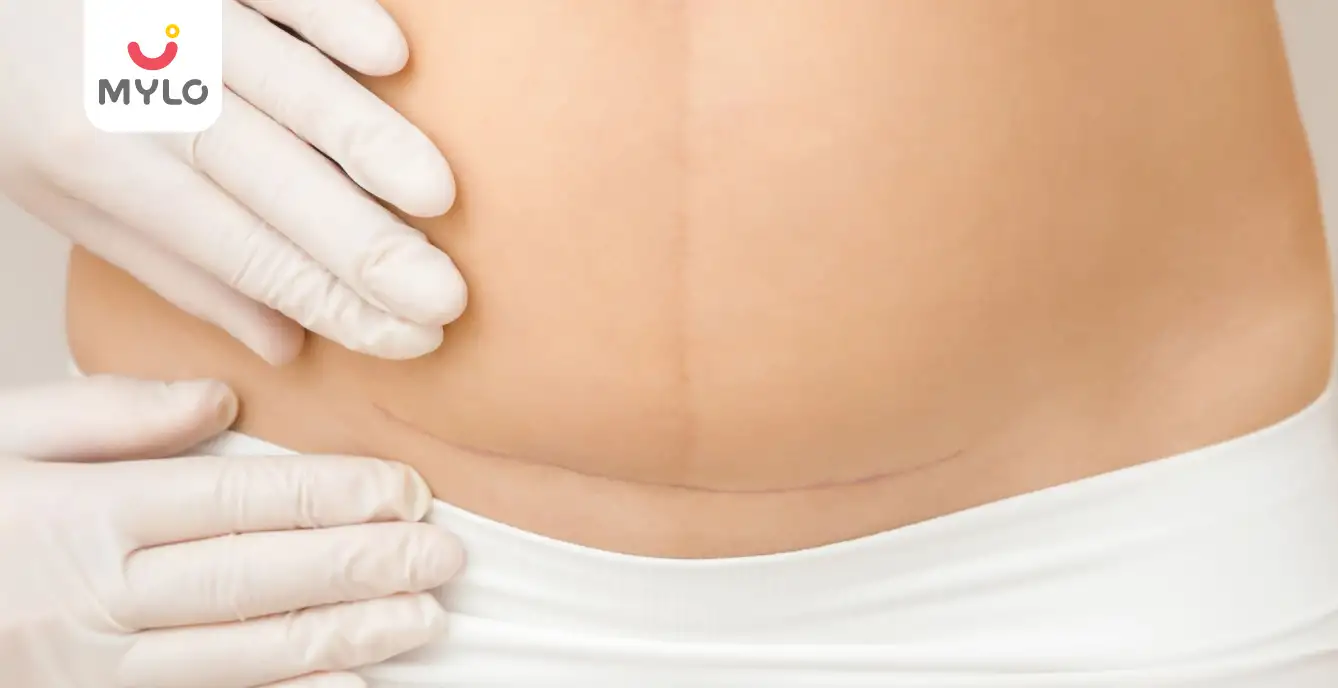
When Can I Start Bending After C-Section: Expert Insights on C-Section Recovery
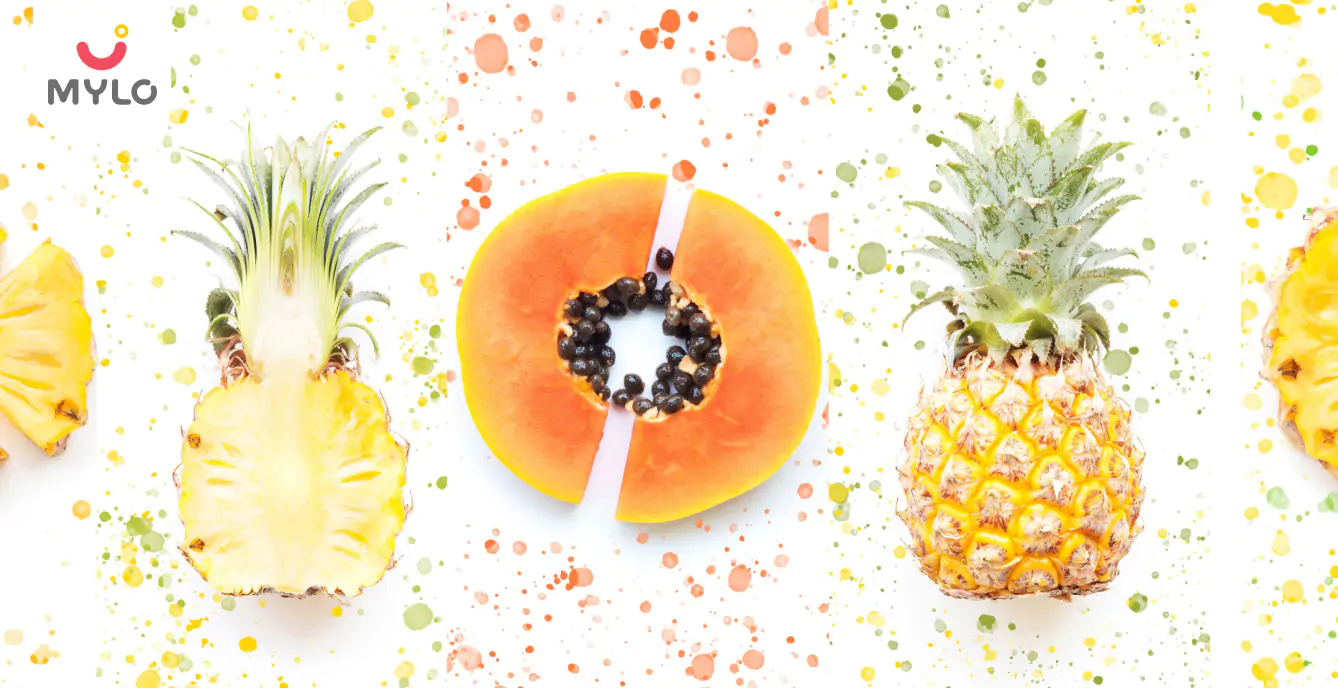
Miscarriage
18 Foods That Can Cause Miscarriage: A Guide to Avoiding Harmful Foods
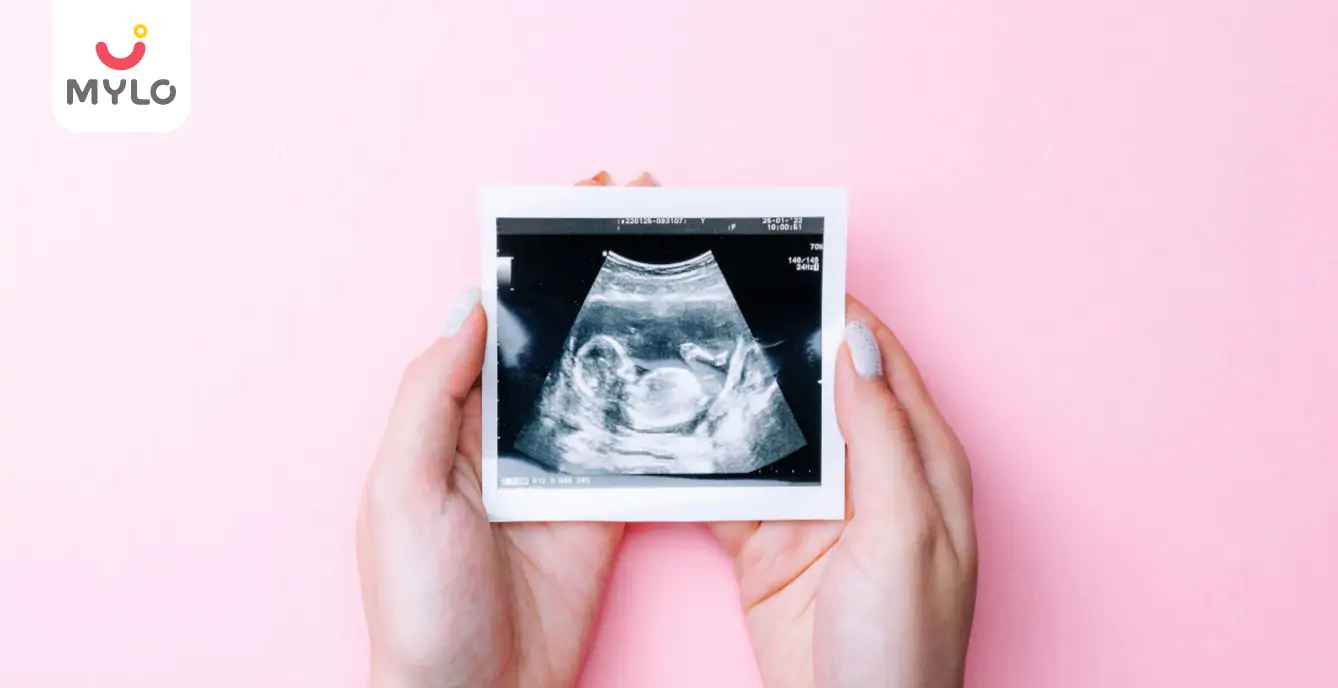
9 Week Ultrasound: What to Expect & What are the Red Signals?
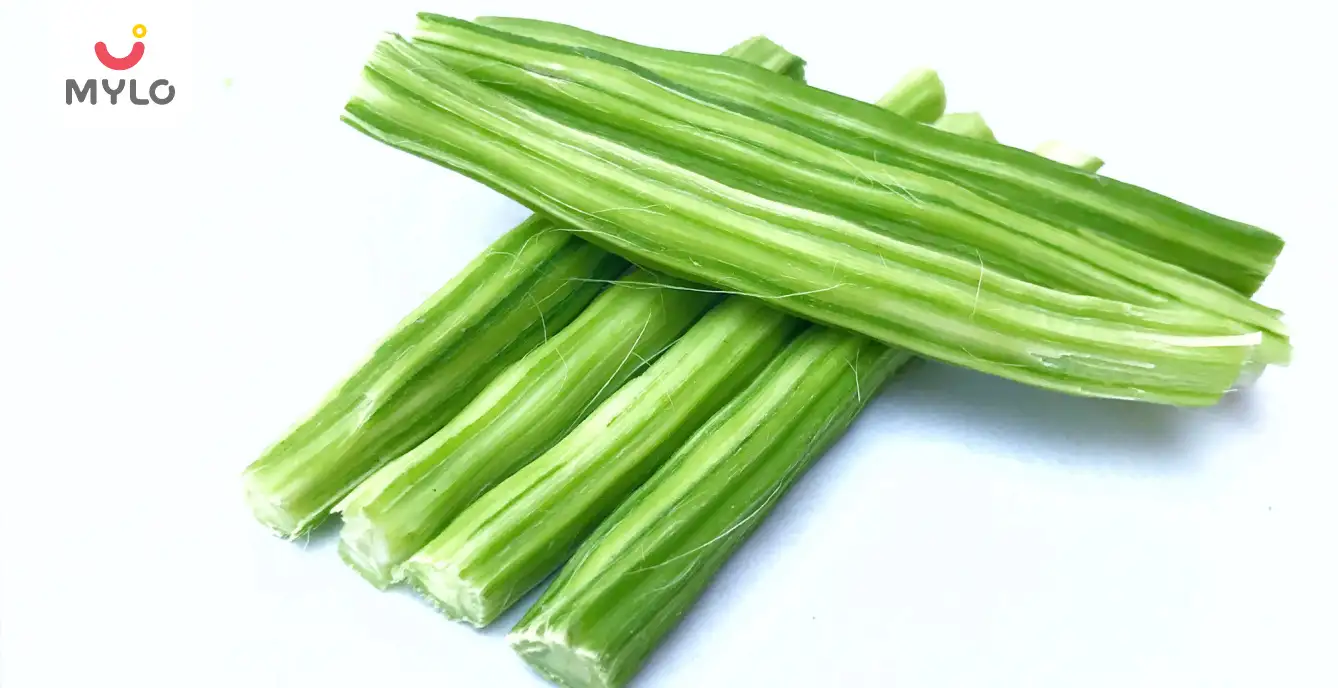
Drumstick During Pregnancy: The Ultimate Guide to Benefits & Side Effects
- How to Avoid Pregnancy After Missing Period Naturally?
- 1st Birthday Wishes for Nephew and Niece That Tug at the Heart
- The Ultimate Collection of Baby Boy Names in Telugu
- Navel Displacement: The Ultimate Guide to Causes, Symptoms & Treatment
- Top 10 Thriller Movies on Hotstar for Edge-of-Your-Seat Excitement
- 10 Best Pakistani Dramas of All Time
- Ear Infection During Pregnancy: Understanding the Risks and Remedies
- Freezing Sperm: Preserving the Possibility of Parenthood
- The Ultimate Guide to Ghee Massage for Babies
- Sunflower Seeds in Pregnancy: Advantages, Risks, & Recipes
- The Ultimate Guide on Cabbage During Pregnancy Benefits and Precautions
- Double Marker Test: Everything You Need to Know for a Healthy Pregnancy
- The Pros and Cons of Consuming Brinjal in Pregnancy
- Why You Should Consider Drinking Coconut Water During Pregnancy?


AWARDS AND RECOGNITION

Mylo wins Forbes D2C Disruptor award

Mylo wins The Economic Times Promising Brands 2022
AS SEEN IN

- Mylo Care: Effective and science-backed personal care and wellness solutions for a joyful you.
- Mylo Baby: Science-backed, gentle and effective personal care & hygiene range for your little one.
- Mylo Community: Trusted and empathetic community of 10mn+ parents and experts.
Product Categories
baby carrier | baby soap | baby wipes | stretch marks cream | baby cream | baby shampoo | baby massage oil | baby hair oil | stretch marks oil | baby body wash | baby powder | baby lotion | diaper rash cream | newborn diapers | teether | baby kajal | baby diapers | cloth diapers |



